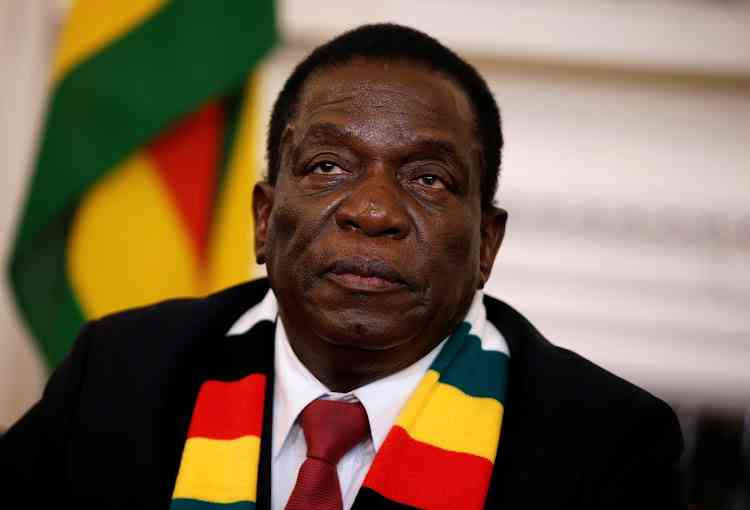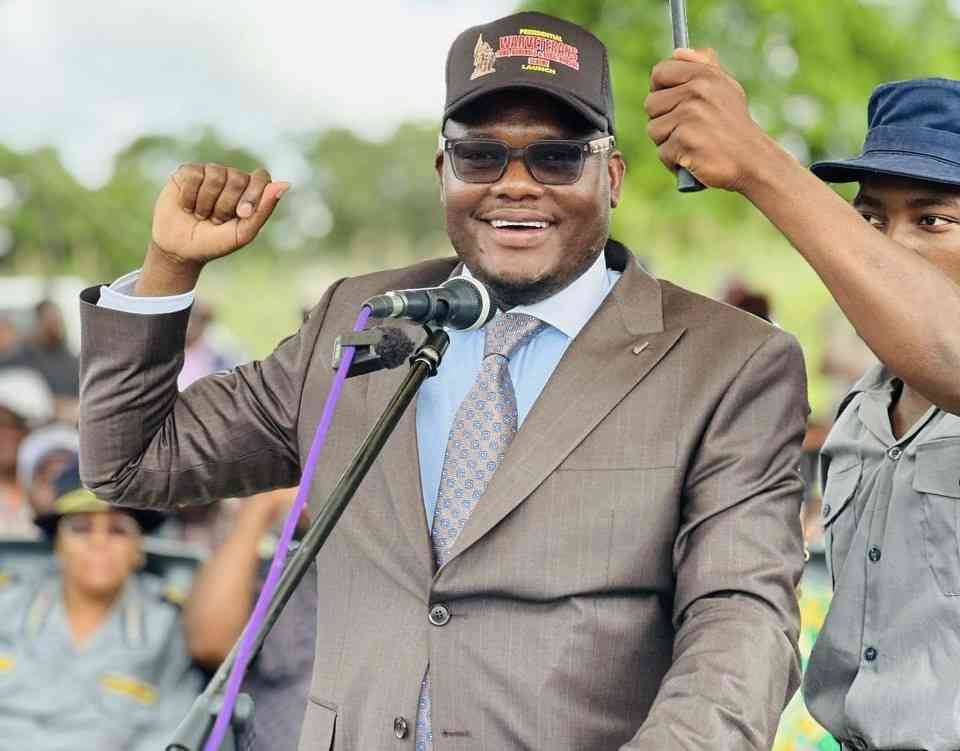
IT is now a public secret that Zimbabwe has become lawless.
Some may even call it a jungle — where the ruling elite flagrantly flout the country’s laws with arrogant impunity.
In fact, this is probably why several election observer missions stationed in Zimbabwe during the August 2023 plebiscite described the process as violating the Constitution and regional guidelines governing democratic elections.
These findings were made unequivocally clear in the Sadc election observer mission’s final report — which was submitted and accepted by regional heads of State in Luanda (Angola) on November 4, 2023.
For us in Zimbabwe, this phenomenon — of the brazen disregard of the law — has become disturbingly all too familiar, and is now the norm, in a country where the rule of law is trampled on by those in power.
We have watched, in utter disbelief, as the law has been turned into a weapon for vindictive persecution of those perceived to be a threat to the ruling clique.
Is that not the reason opposition activist Job Sikhala is languishing in prison for nearly one and a half years — after being repeatedly denied his constitutional right to bail, in a case smacking of crude political chicanery?
Various other dissenters have been arrested on spurious charges and denied bail — with Jacob Ngarivhume jailed for four years for merely calling for peaceful protests — a right that is guaranteed by section 59 of our very own Constitution.
- ED’s influence will take generations to erase
- ‘Govt spineless on wetland land barons’
- Govt under attack over banks lending ban
- Zim Constitution must be amended
Keep Reading
The right to bail is enshrined in section 50(1)(d), whose basic principle is found in section 70(1)(a) — that any person accused of an offence is presumed innocent until proven guilty.
Further to this, many of these persecuted political prisoners — as that is exactly what they are — are frequently denied access to their legal representatives, again in violation of the Constitution, particularly section 69(4).
Having gone through the background that proves we are a lawless country — let us look at another potential violation of the law.
Ever since President Emmerson Dambudzo Mnangagwa was declared the winner of the August 2023 harmonised elections, talk have been rife of his intention to amend the Constitution.
He is now serving his second and final term.
The plan, is to remove limits which restrict a President to serve only two terms of not more than five years each — specifically Section 91(2) and 95(2)(b).
However, there is one huge hurdle standing in his way.
The ruling Zanu PF party failed to garner a two-thirds majority in Parliament required to facilitate these amendments.
In the August polls, the party won 176 of the 280 available seats — whereas the main opposition CCC had 103 — which gave the ruling party only 56,11%.
That is why there is huge speculation that the recent recalling of 14 CCC MPs and nine Senators by self-proclaimed interim secretary-general, Sengezo Tshabangu, was either sponsored by Zanu PF or the party merely took full advantage of the infighting within the opposition camp.
This has, nonetheless, triggered by-elections scheduled for December 9, 2023 — with may actually see the recalled legislators returning to Parliament.
For how long will these parliamentarians survive in the august House can only be conjectured — since Tshabangu may recall them again, on account of them standing in the by-elections on a CCC ticket.
This is after the High Court, on November 4, 2023, dismissed the affected legislators’ challenge on Tshabangu’s authority in instituting these recalls.
The court found that the applicants failed to prove that Tshabangu was not a genuine interim secretary-general of the CCC.
The question now is: Will Mnangagwa, in the meantime, exploit the absence of these legislators to swiftly push through the constitutional amendments required to extend his term of office beyond 2028?
Let me add that the man is already 81 years old and will be 86 in 2028, which means that, should he achieve his objectives, he will be 91 years old by the time his third term concludes in 2033!
Nonetheless, even if he proceeded with this plan, there is another, even bigger mountain, awaiting him.
This is Section 328 (7) of the Constitution.
It states: “An amendment to a term-limit provision, the effect of which is to extend the length of time that a person may hold or occupy any public office, does not apply in relation to any person who held or occupied that office, or an equivalent office, at anytime before the amendment.”
In other words, even if Mnangagwa successfully removed or extended the presidential term limit — he is effectively excluded from benefiting from such amendment.
Only his successor can reap the fruits!
Maybe I am missing something, but there is absolutely no logic behind all this hullabaloo over Mnangagwa’s plans to remove the term limit.
I am definitely not saying he has no such intentions.
However, surely how does he expect this to benefit him?
Unless, of course, as has become typical of this regime, he plans to blatantly ignore this most critical aspect of the Constitution.
Is this not what transpired in 2021, when the Zanu PF regime extended the retirement age [section 186(1)(a)] of serving court judges from 70 to 75 years, as long as he or she still had the “mental and physical fitness to continue in the office”?
This was widely viewed as an attempt to benefit sitting Chief Justice Luke Malaba — whom many Zimbabweans believe is Mnangagwa’s key ally in critical moments such as the mulled presidential term limit removal.
As with the presidential term limit, Malaba was not eligible to benefit from the extension — yet he did!
Nonetheless, the government managed to weasel through this constitutional crisis by claiming that extending the retirement age was not the same as extending the term limit.
The whopper of all these constitutional violations was the recent appointment of Commander of the Zimbabwe Defence Forces, General Phillip Valerio Sibanda by Mnangagwa as an ex-officio member of the Zanu PF politburo.
According to the Constitution [Section 208(3)]: Members of the security services must not be active members or office-bearers of any political party or organisation.
In addition, section (2)(a) and (b) prohibits members of the security services to act in a partisan manner and further the interests of any political party or cause. Whatever angle one looks at this, the Mnangagwa regime has made a career out of blatantly abusing the country's supreme law.
Let us remember that, as already highlighted, this is an administration with no qualms whatsoever with defying or twisting the country’s laws. In all this, Mnangagwa has stubbornly disregarded any calls for him to “obey, uphold and defend the Constitution” — as he pledged when he took oath of office.
Nevertheless, the citizenry should brace themselves for a gruelling Constitutional Court challenge to prevent Mnangagwa from benefiting from such an amendment.
- Tendai Ruben Mbofana is a social justice advocate and writer. Please feel free to WhatsApp or Call: +263715667700 | +263782283975, or email: [email protected], or visit website: http://mbofanatendairuben.news.blog/









